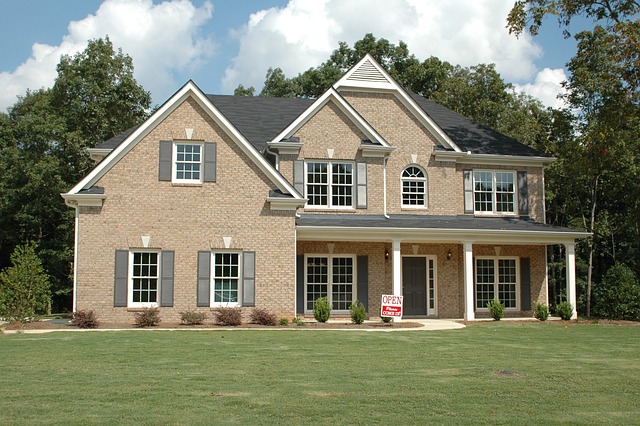Effective property management is crucial for real estate investors and property owners to maximize performance and investment returns across residential and commercial properties. This encompasses maintaining high occupancy rates, nurturing strong landlord-tenant relationships, and protecting rental income through specialized software that automates tenant communications, rent payments tracking, and maintenance requests, thereby streamlining operations and improving financial record accuracy for informed budgeting and cash flow forecasting. Tenant satisfaction is also key, which depends on prompt and professional property maintenance to sustain the property's value and encourage longer tenancies. Rigorous tenant screening processes ensure dependable renters who honor lease terms, which in turn secures consistent rental income. Property owners can enhance their investment returns by adopting best practices in tenant selection and utilizing property management software, thereby promoting a favorable living experience for tenants while navigating the complexities of real estate investment effectively. By focusing on effective communication, diligent maintenance, and meticulous tenant selection, landlords can optimize their portfolios using property management tips tailored to the evolving landscape of property management.
Navigating the complexities of managing residential and commercial properties requires a blend of strategic oversight and hands-on execution. This article serves as a comprehensive guide for property owners seeking to optimize their real estate investments through effective management practices. We’ll explore the multifaceted role of property management in achieving real estate success, and delve into the critical aspects of tenant screening, property maintenance, and the use of advanced systems to ensure rental income stability and asset value maximization. By examining best practices for landlord-tenant relationships, leveraging property management software, and understanding legalities related to tenancy laws and compliance, property owners can streamline operations and enhance their portfolio’s performance. Additionally, we’ll provide insights on tenant retention strategies, market analysis for optimal rental pricing, and the importance of regular property inspections to maintain high standards and safety. Property management tips and tools will be highlighted throughout, ensuring that both novice and seasoned landlords can build and manage a strong rental community effectively.
- Optimizing Real Estate Investments: A Comprehensive Guide to Managing Rental Properties
- – Understanding the Role of Property Management in Real Estate Success
- – Key Considerations for Residential and Commercial Property Owners
- – The Importance of Tenant Screening in Ensuring Rental Income Stability
Optimizing Real Estate Investments: A Comprehensive Guide to Managing Rental Properties

Navigating the complexities of managing both residential and commercial properties requires a strategic approach to ensure optimal performance and return on investment. For property owners, effective property management is pivotal in maintaining high occupancy rates, fostering good landlord-tenant relationships, and safeguarding rental income. Utilizing specialized property management software can streamline operations by automating tenant communications, tracking rent payments, and managing maintenance requests. This technology not only saves time but also enhances the accuracy of financial records, which is crucial for budgeting and forecasting future cash flows.
In addition to leveraging tech-savvy solutions, property owners must prioritize tenant satisfaction through prompt and professional maintenance services. Regular property upkeep not only preserves the value of the investment but also contributes to a positive living environment that retains quality tenants for longer periods. Implementing thorough tenant screening processes is another cornerstone of successful property management, ensuring that reliable tenants are selected who respect the rental agreement and contribute consistently to the rental income. By adhering to property management tips that emphasize effective communication, diligent maintenance, and careful tenant selection, property owners can optimize their real estate investments and navigate the dynamic landscape of residential and commercial property management with confidence.
– Understanding the Role of Property Management in Real Estate Success

In the realm of real estate, effective property management is a cornerstone of success for both property owners and landlords. It encompasses a wide array of responsibilities, from maintaining rental properties to optimizing tenant relations and ensuring consistent rental income. Adept property management is pivotal in preserving the value of properties, as it involves overseeing day-to-day operations, addressing tenant concerns promptly, and implementing robust maintenance schedules. Utilizing property management software can streamline these tasks, offering tools for tracking expenses, managing leases, and processing rent payments efficiently. For landlords, the ability to screen tenants thoroughly is a critical aspect of this process, as it minimizes the risk of unpaid rent and property damage. By employing best practices in tenant selection and leveraging technology to facilitate management tasks, property owners can maximize their investment returns while fostering a positive living environment for tenants.
Navigating the complexities of managing both residential and commercial properties requires a strategic approach that balances the unique needs of each type of tenant. Residential tenants often seek a comfortable home environment, whereas commercial tenants may prioritize location, amenities, and services conducive to their business operations. Property management tips tailored to these distinct requirements can enhance tenant satisfaction and retention. Regular property inspections, proactive maintenance, and transparent communication are essential practices that contribute to the longevity of a property and the sustainability of its rental income. By staying abreast of market trends and adhering to regulatory compliance, property managers can effectively oversee their portfolios, ensuring that each property operates smoothly and profitably.
– Key Considerations for Residential and Commercial Property Owners

Property management encompasses a diverse set of responsibilities that are critical for both residential and commercial real estate owners to ensure the efficient operation of their rental properties. For property owners, maintaining high occupancy rates is key to maximizing rental income. This involves effective tenant screening processes to ensure reliable and compatible tenants who can consistently contribute to your cash flow. Landlords must stay informed about the latest property management tips, which often include leveraging specialized property management software. These tools streamline tasks such as rent collection, expense tracking, and communication with tenants, thereby saving time and reducing administrative errors.
In addition to managing the financial aspects of a rental property, property owners must also focus on property maintenance to preserve the value and condition of their investments. Regular upkeep is essential to prevent costly repairs down the line and to maintain tenant satisfaction. A well-maintained property can also command higher rents and retain tenants for longer periods. It’s crucial for property owners to establish a clear maintenance schedule and, if necessary, delegate tasks to professional services. By combining attentive tenant relations with diligent property upkeep and utilizing advanced property management software, property owners can effectively manage their residential or commercial rental properties, ensuring a stable and profitable real estate portfolio.
– The Importance of Tenant Screening in Ensuring Rental Income Stability

In the realm of property management, ensuring a steady stream of rental income is paramount for both real estate investors and property owners. A robust tenant screening process is an essential component in this endeavor. By carefully evaluating potential tenants through a comprehensive background check, landlords can select reliable occupants who are more likely to adhere to lease agreements, pay rent on time, and maintain the property in good condition. This due diligence not only protects the investment but also fosters long-term relationships with responsible tenants.
Property management software has revolutionized this aspect of property management by automating the screening process. These tools enable property owners to efficiently gather and assess critical data such as credit history, employment verification, and previous landlord references. Utilizing such technology not only saves time but also reduces human error, thereby increasing the accuracy of tenant selection decisions. In addition to tenant screening, property maintenance is another area where diligent management is crucial for preserving the value of rental properties. Regular upkeep and timely repairs, informed by a keen understanding of market standards and tenant needs, contribute to maintaining high occupancy rates and ensuring that rental income remains stable over time.
In conclusion, effective property management is a cornerstone for any real estate investor looking to maximize returns from their rental properties. Whether one owns residential or commercial properties, the principles of sound management—from tenant screening to consistent property maintenance—remain paramount. Utilizing property management software and adhering to property management tips can streamline operations, ensuring rental income stability and fostering a positive relationship between landlords and tenants. For property owners, staying informed on the latest market trends and regulatory changes is essential for long-term success in the dynamic world of real estate. By implementing these strategies, investors can navigate the nuances of managing various types of properties with confidence and efficiency.




